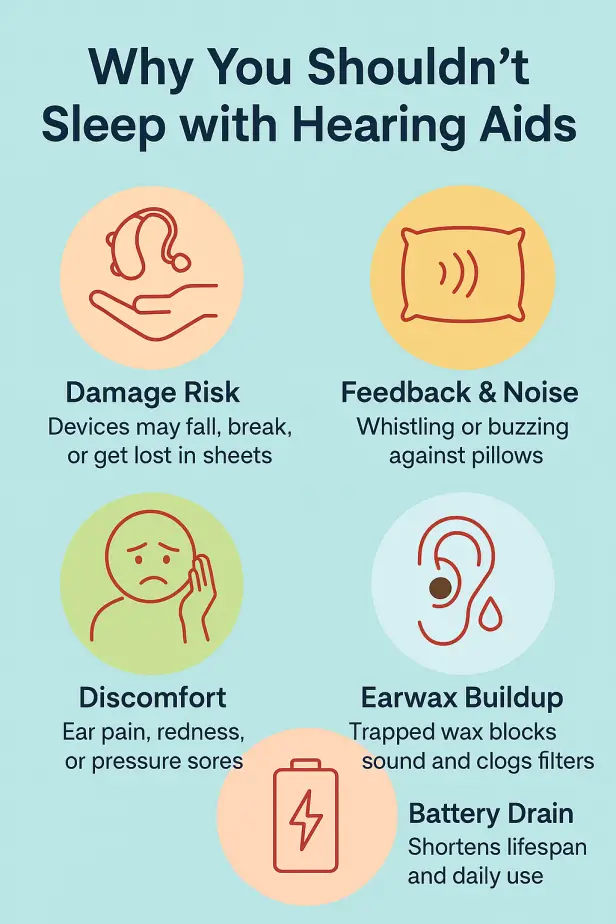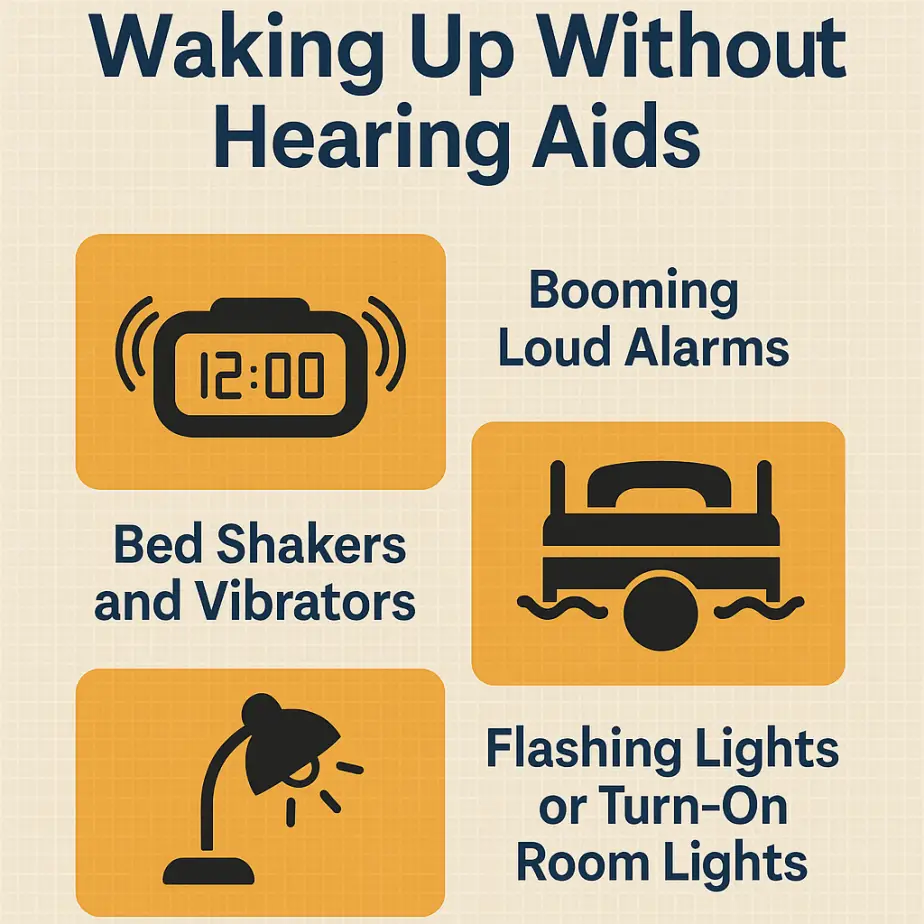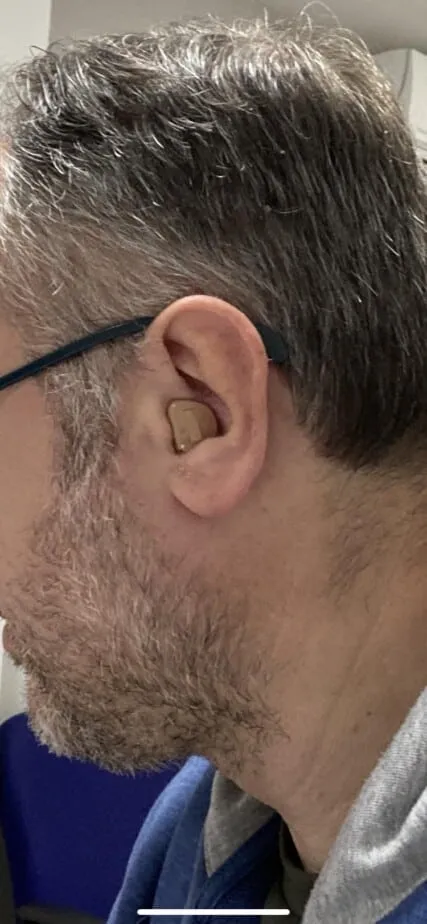Sleeping with your hearing aids in might seem convenient, especially if you’re worried about alarms, safety, or missing out on nighttime sounds. However, audiologists strongly advise removing hearing aids before bed. Doing so not only protects your devices but also promotes better ear health and comfort.
As an audiologist who has fitted thousands of patients, I often hear this question: “Is it bad to sleep with hearing aids on?” The answer is yes — and here’s why.

5 Reasons You Shouldn’t Sleep with Hearing Aids
| Reason | Explanation |
|---|---|
| Risk of Losing or Damaging Your Hearing Aids | Movement during sleep can dislodge hearing aids, causing them to fall out, get tangled in bedding, or be crushed. |
| Feedback and Sound Distortion | Contact with pillows or blankets can trigger whistling, buzzing, or distortion. |
| Discomfort and Pressure Sores | Prolonged pressure on your ear can lead to irritation, redness, or sores. |
| Earwax Accumulation | Hearing aids block the natural migration of wax, leading to buildup and blockages. |
| Battery Drain and Reduced Performance | Leaving aids on overnight wastes battery power and may shorten device lifespan. |
1. Risk of Losing or Damaging Your Hearing Aids
Hearing aids are small, delicate, and expensive. Tossing and turning during sleep can easily dislodge them. Once loose, they may fall to the floor, get lost in the sheets, or even be crushed if you roll over them.
💡 Pro Tip: Always store your devices in a dry case or charger overnight. This not only protects them but also helps manage moisture — one of the most common causes of damage. Learn more about proper care in our Complete Guide to Hearing Aid Maintenance & Repairs.
2. Feedback and Sound Distortion
When hearing aids press against pillows, they often create a feedback loop — producing whistling, buzzing, or static sounds. This can disturb both you and your partner.
If you want to use your hearing aids for a short nap, that’s usually fine. But for overnight sleep, the combination of feedback, pressure, and risk of loss outweighs any benefit.
3. Discomfort and Pressure Sores
Even the most comfortable hearing aid styles aren’t designed for long hours of ear pressure. Sleeping with them in may cause soreness, irritation, or even pressure sores.
Many patients tell me they didn’t realize how much more comfortable sleeping could be until they stopped wearing aids at night. Your ears need a rest too.
4. Earwax Accumulation
Hearing aids can trap earwax inside the canal, especially overnight when natural wax migration slows down. This can lead to blockages, muffled sound, and frequent filter or wax trap replacements.
For more on this, see our guide: When to Change Hearing Aid Tubing, Domes, and Wax Traps.
5. Battery Drain and Reduced Performance
Leaving your hearing aids on overnight will quickly drain the batteries and may reduce their long-term performance.
- If you have rechargeable hearing aids, place them on the charger each night for a full day’s use.
- If your devices use disposable batteries, be sure to switch them off before bed to conserve power.
This simple habit extends device life and ensures maximum performance.
Waking Up Without Hearing Aids
A common concern patients share is: “If I don’t wear my hearing aids at night, how will I wake up?” Fortunately, there are several specialized alarm clocks for people with hearing loss, including:
- Bed shakers – Vibrate your pillow or mattress to wake you through touch.
- Flashing light alarms – Bright, strobe-style lights grab your attention.
- Extra-loud alarms – Designed to be heard even with moderate to severe hearing loss.
These tools give peace of mind without needing to risk your hearing aids overnight.
Nighttime Safety and Fire Alarms

Another concern is safety in emergencies. Traditional fire alarms use high-pitched sounds, which may not alert you if your hearing aids are out.
For extra protection, consider specialized fire alarms for hearing loss. These devices use:
- Flashing lights to provide a visual alert.
- Low-frequency sounds that can be felt as vibrations.
- Integration with your home’s alarm system for complete coverage.
For recommendations, see our guide on safety devices for hearing aid users (includes fire alarms and alerting systems).
Exceptions: When Sleeping with Hearing Aids May Be Considered
While not recommended for most situations, there are a few exceptions:
- Parents with infants or young children who need to monitor for sounds at night.
- Camping or hiking trips where environmental awareness is essential for safety.
- Severe hearing loss where some patients may feel vulnerable without aids.
Even in these cases, alternatives like bed shakers, baby monitor systems with flashing lights, or portable safety devices are safer long-term solutions.
FAQ: Sleeping with Hearing Aids
Can I nap with hearing aids in?
Yes, short naps are generally fine. Just avoid overnight use due to pressure and feedback issues.
What if I accidentally fall asleep with them on?
No major harm for a short period, but avoid making it a habit. Check for moisture and store them properly when you wake up.
Will I miss my alarm without hearing aids?
Not if you use specialty alarms with flashing lights, vibrations, or loud alerts designed for hearing loss.
Conclusion
While it may seem harmless, sleeping with hearing aids increases the risk of damage, discomfort, wax buildup, and battery drain. For better sleep, improved hygiene, and longer-lasting devices, it’s best to remove them before bed.
Instead, rely on safe alternatives like bed-shaker alarms, flashing light alerts, or specialized fire alarms. This ensures both your safety and your hearing aid longevity.
For more expert advice, see:

